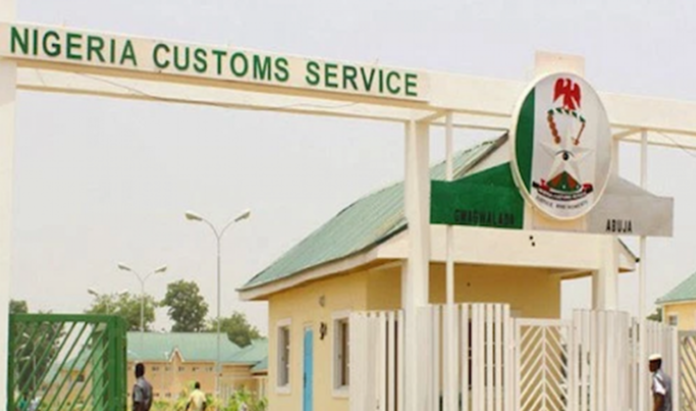In a significant development for Nigeria’s trade and logistics sector, the Africa Association of Professional Freight Forwarders and Logistics of Nigeria (APFFLON) has called for an extension of the validity period for brokerage licenses issued by the Nigeria Customs Service (NCS).
The association’s National President, Frank Ogunojemite, formally proposed that the licenses, currently renewed annually, be extended to a two-year validity period to streamline operations and reduce financial and administrative pressures on licensed agents.
The announcement, made public through a statement released on April 9, 2025, underscores a broader push to modernize and optimize customs processes across the country.
The proposal comes at a time when the NCS is gaining recognition for its advancements in trade facilitation, notably marked by the issuance of its first Pre-Arrival Assessment Report (PAAR) under the newly implemented B’Odogwu platform. This Unified Customs Management System, a locally developed replacement for the Nigeria Integrated Customs Information System, aims to revolutionize customs operations by improving the efficiency of trade documentation and fostering stronger collaboration among government agencies.
Ogunojemite took the opportunity to commend the NCS for this milestone, noting its potential to enhance transparency and expedite trade processes.
The call for a biennial license renewal follows recent high-level engagements between the NCS and other key institutions, including a strategic meeting between the Comptroller-General of Customs, Adewale Adeniyi, and the Governor of the Central Bank of Nigeria, Olayemi Cardoso.
During these discussions, both parties reaffirmed their commitment to improving trade efficiency, bolstering revenue collection, and strengthening financial integration to support Nigeria’s economic growth. The introduction of the B’Odogwu platform and the push for extended license validity are seen as complementary efforts to align customs operations with global best practices.
Ogunojemite elaborated on the potential advantages of transitioning to a two-year license validity, emphasizing that such a change could significantly alleviate the operational burdens faced by both customs agents and the NCS.
He highlighted that extending the renewal period would reduce the frequency of administrative tasks associated with license applications, thereby allowing businesses to allocate more resources to their primary functions. Additionally, the proposed change is expected to lower the economic costs borne by agents, including fees and expenses tied to preparing and submitting renewal documentation.
Beyond cost savings, the APFFLON president argued that a longer license validity would enhance operational efficiency and predictability for businesses engaged in Nigeria’s logistics and supply chain sectors.
By reducing the need for annual renewals, companies could streamline their compliance processes and focus on long-term planning, ultimately contributing to smoother trade operations. Ogunojemite further noted that a two-year license period would provide greater stability, enabling firms to make more strategic decisions regarding their logistics and supply chain management.
Another key benefit outlined by Ogunojemite is the potential for improved risk management and security oversight. He suggested that a biennial renewal cycle would allow the NCS to conduct more comprehensive risk assessments, enabling the agency to better identify and address potential vulnerabilities in trade processes. This, in turn, could enhance monitoring efforts and strengthen the overall security framework governing Nigeria’s customs operations.
The proposal has sparked interest among stakeholders in the freight-forwarding and logistics community, who see it as a step toward aligning Nigeria’s customs policies with the needs of a rapidly evolving trade landscape. By reducing administrative bottlenecks and fostering a more predictable business environment, the two-year license validity could pave the way for increased competitiveness in Nigeria’s trade sector.
As the NCS continues to roll out innovations like the B’Odogwu platform, the push for extended license validity reflects a broader commitment to creating a more efficient and business-friendly customs ecosystem.
Ogunojemite’s statement concluded with a call for dialogue between APFFLON, the NCS, and other relevant stakeholders to further explore the feasibility of the proposal. While the NCS has yet to formally respond, the recommendation has already generated buzz within the industry, with many anticipating that it could mark a turning point in how customs brokerage licenses are managed in Nigeria. As the nation seeks to solidify its position as a hub for trade in Africa, initiatives like these are poised to play a critical role in shaping the future of its logistics and customs operations.

